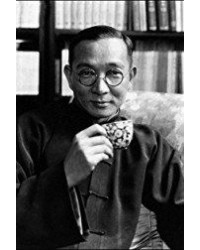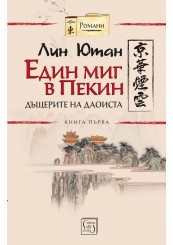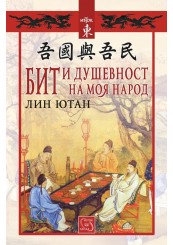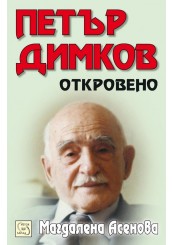Lin Yutang

Lin Yutang (1895–1976) was a Chinese writer, translator, linguist, philosopher and inventor. His informal but polished style in both Chinese and English made him one of the most influential writers of his generation, and his compilations and translations of classic Chinese texts into English were bestsellers in the West.
Lin was born in 1895 in the town of Banzai, Fujian. The mountainous region made a deep impression on his consciousness, and thereafter, he would constantly consider himself a child of the mountains (in one of his books he commented that his idea of hell was a city apartment).
His father was a Christian minister. His journey of faith from Christianity to Taoism and Buddhism, and back to Christianity in his later life was recorded in his book From Pagan to Christian (1959).
Lin studied for his bachelor's degree at Saint John's University in Shanghai, then received a half-scholarship to continue study for a doctoral degree at Harvard University. He left Harvard early, since he couldn't afford to study in Harvard anymore,and moved to work with the Chinese Labor Corps in France and eventually to Germany, where he completed his requirements for a doctoral degree in Chinese philology at the University of Leipzig. From 1923 to 1926 he taught English literature at Peking University.
His humor magazine, Lunyu banyuekan (The Analects Fortnightly, 1932-40, 1945-49) featured essays by prominent writers such as Hu Shi, Lao She, Lu Xun, and Zhou Zuoren and attracted a wide readership. He was a key figure in introducing the Western concept of humor, which he felt China had lacked. Lin coined the term youmo (humor) in 1924 and used The Analects to promote his conception of humor as the expression of a tolerant, cosmopolitan, understanding and civilized philosophy of life.
After 1935, Lin lived mainly in the United States, where he became known as a "wise and witty" popularizer of Chinese philosophy and way of life. Lin's first best sellers were My Country and My People (吾國與吾民) (1935) and The Importance of Living (生活的藝術) (1937), written in English in a charming style.
Mechanics had been a long time avocation. Since Chinese is a character-based rather than an alphabet-based language, with many thousands of separate characters, it was difficult to employ modern printing technologies. Many doubted that a Chinese typewriter could be invented. Lin, however, worked on this problem for decades and eventually came up with a workable typewriter, brought to market in the middle of the war with Japan.
With his facility for both Chinese and English idiom, Lin presided over the compilation of a Chinese-English dictionary, Lin Yutang's Chinese-English Dictionary of Modern Usage (1972), which contains a massive English index to definitions of Chinese terms. The work was undertaken at the newly founded Chinese University of Hong Kong.
His many works represent an attempt to bridge the cultural gap between the East and the West. He was nominated for the Nobel Prize in Literature in 1940 and 1950.
Lin was buried at his home in Yangmingshan, Taipei, Taiwan. His home has been turned into a museum, which is operated by Taipei-based Soochow University. The town of Lin's birth, Banzai, has also preserved the original Lin home and turned it into a museum.




